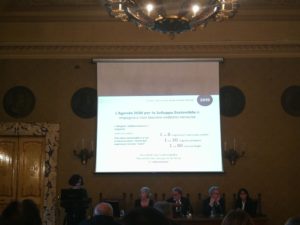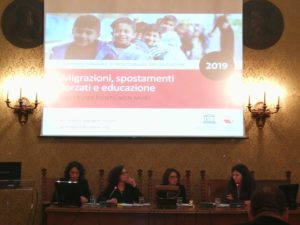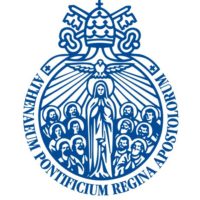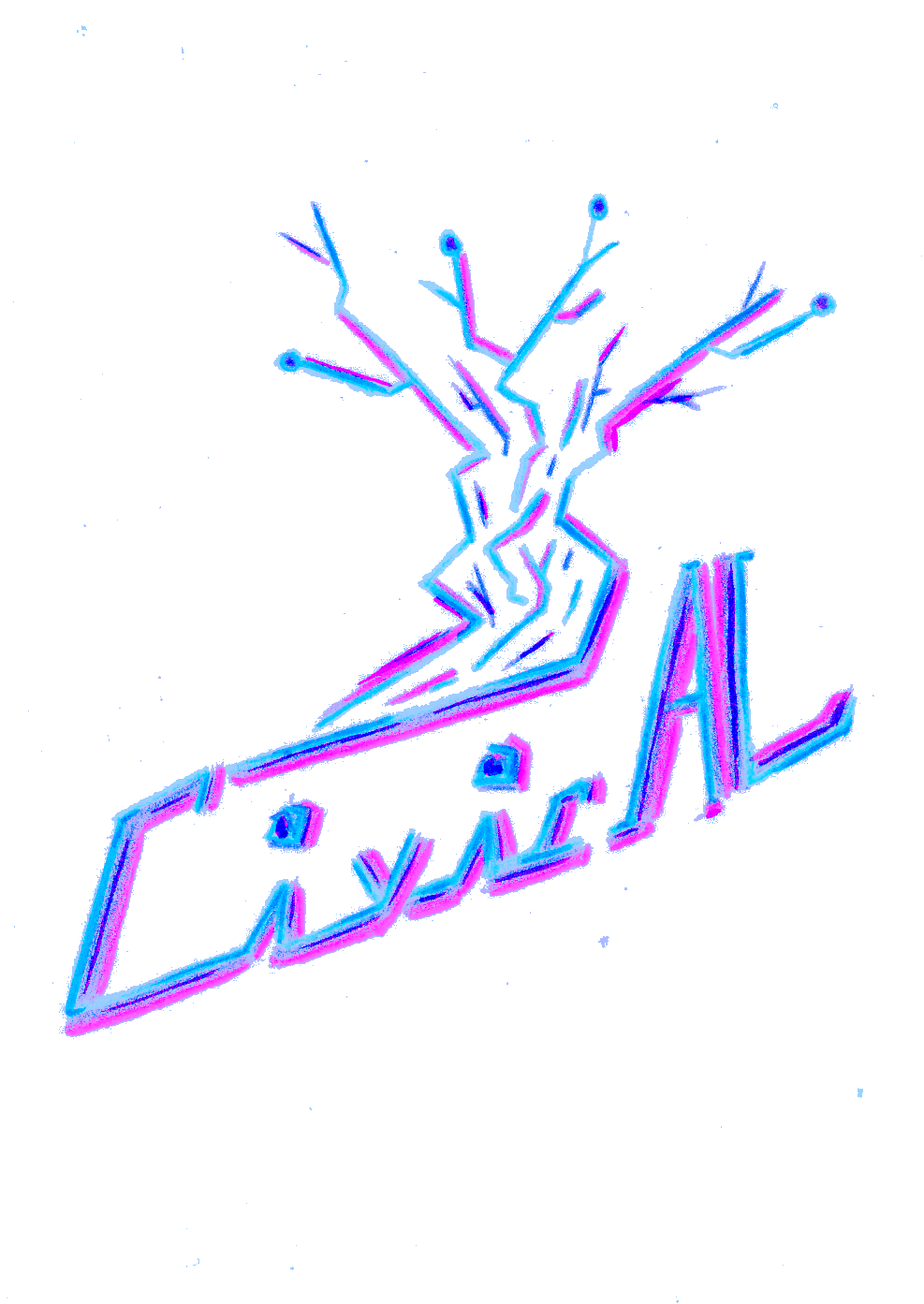UNESCO Chair in Bioethics and Human Rights invited to Brescia for two days of study on migration.
Brescia Port of Worlds. Culture Narrates Migrations.
On Feb. 23, 24 and 25, the UNESCO Chair of the University of Brescia’s “Training and Strengthening Human Resources for Health Development in Resource-limited Countries,” in collaboration with the Italian Network of Italian UNESCO Chairs and the CARME Cultural Association, on the occasion of Brescia Bergamo Italian Capital of Culture 2023, organized an event titled “Brescia Port of Worlds. Culture Narrates Migrations.”
The event took place in the Carmine neighborhood, the cradle of more than 145 different nationalities, a symbol of the migration and integration phenomenon in the city of Brescia. Specifically, the event occurred within the C.A.R.M.E. Centro Arti Multiculturali ed Etnosociali, a place that fosters dialogue and social and cultural aggregation. On the initiative of citizens to enhance the former church of Saints Philip and James, CARME lends itself as a workshop, discussion forum and gallery for temporary exhibitions. In this multicultural context, the forum for discussion on the multiple aspects of the migration phenomenon and integration models was held with a focus on Brescia bringing the community closer to speeches and testimonies of experts, professionals and representatives through presentations, round tables and cultural, musical and film performances.
Some representatives of Italian UNESCO Chairs, including our Chair of Bioethics and Human Rights represented by Serena Montefusco, shared their experiences and projects in line with the 2030 Agenda and UNESCO principles on migration. In fact, as stated in the Concept Note, UNESCO pays particular interest to the phenomenon of migration and its implications, in order to understand the links between migration and education and the challenges posed by intercultural education, student mobility and international recognition of qualifications. The organization also addresses the social dimensions of climate change and migration, particularly with regard to governance, conflict, human rights and international law, gender equality, economic and human development and public health.
In light of these principles, interesting interventions aimed at developing the education and skills of migrants and refugees welcomed to the European Union emerged. After the video greetings of the CNIU Secretary General, Enrico Vicenti, the proceedings were opened by the President of the University of Brescia, Prof. Francesco Castelli also Chairholder of the Chair “Training and Reinforcement of Human Resources for Health Development in Resource Limited Countries” who spoke in-depth about the various types of migrants and on the theory of pull and push factors. Then Prof. Raimondo Cagiano de Azevedo of the UNESCO Chair Population, Migrations and Development, Sapienza University of Rome, spoke summarizing the development challenges and opportunities for migrants both in the country of origin and destination. Continuing, Professors Domenico Simeone and Diego Mesa of the UNESCO Chair Education for Human Development and Solidarity among Peoples, Università Cattolica del Sacro Cuore, presented a phenomenon, which is constantly growing, concerning the reception of unaccompanied foreign minors. After a short break, the proceedings resumed with speeches by other representatives of UNESCO Chairs including Antonio Guerci, UNESCO Chair Anthropology of Health. Biosphere and Healing Systems, University of Genoa; Massimo Zortea, UNESCO Chair Engineering for Human and Sustainable Development, University of Trento; Paola Raffa and Natalina Carrà, UNESCO Chair Mediterranean Landscapes in Context of Emergency, University of Reggio Calabria; Serena Montefusco, UNESCO Chair in Bioethics and Human Rights Chair, Pontifical Athenaeum Regina Apostolorum and European University of Rome; Annateresa Rondinella, UNESCO Sustainable Energy Communities Chair, University of Pisa and UNESCO Chair On Futures of Education for Sustainability, Pontifical Lateran University; Giovanna Marconi and Solomon Elala Seyoum, UNESCO Chair on Social and Spatial Inclusion of International Migrants, Urban Policies and Practices, Iuav University of Venice.
Serena Montefusco shared the activities carried out within the Bioethics and Human Ecology area of interest, specifically the implementation of projects supported by EU funds i.e. EUROSOL and CivicAL, but also an event presenting the Global Compact on migrants and refugees and the Role and Impact of the Church. With the release of the Encyclical Laudato Sì, the Chair has created a research group to explore the topic of the environment, biosphere and biodiversity. Human ecology means that the ecological issue is an ethical issue concerning human actions. In addressing diverse and pressing environmental issues, it is important to safeguard the centrality of the human person and his dignity. Sustainable development implies that the progress of society must be accompanied by the integral development of the whole person, including his or her physical, psychosocial, cultural and spiritual-moral dimensions. The right to the integral development of the whole person entails the duty to accommodate and provide the means to move from a state of social vulnerability to a state of dignified life (see Art. 3 SDGs) through good education (see Art. 4 SDGs) and the continued work of governments and societies for peace and justice (see Art. 16 SDGs). The responsibility, in fact, lies not only with all governments, but all members of society have responsibilities regarding the promotion and realization of this right to migration, including individuals, families, local communities, nongovernmental organizations, and civil society organizations.
Annateresa Rondinella, shared with the audience the UNESCO Passport to Qualifications for Vulnerable Refugees and Migrants. UNESCO, in the field of Education, established The UNESCO Passport for the Qualifications of Vulnerable Refugees and Migrants drawing on the experiences and methodology of the European Qualifications Passport (EQPR) initiative in an initiative sponsored by the Norwegian Agency for Quality Assurance in Education (NOKUT) in collaboration with the Council of Europe. Based on the Lisbon Convention adopted on November 14, 2017 in Strasbourg, the UNESCO Qualifications Passport for Refugees is a standardized statement that contains three parts: the assessment part, the explanatory part, and the third part about the way forward. It differs from the European Qualifications Passport for Refugees, which consists of two parts: the assessment part and the explanatory part. Although this document does not constitute formal recognition or authorization or entitlement to practice a particular profession, it summarizes and presents the information available based on the applicant’s level of education, work experience and language skills. The assessment methodology is defined by the combination of an evaluation of available documentation, and the use of structured interview. Thus, the document provides credible information that may be relevant to applications for jobs, internships, qualifying courses, admission to studies. An early example of UQP recognition is right at the University of Brescia.
Another example of mobility, thanks to UNHCR-promoted university corridors, was shared directly by Solomon Seyoum Elala of the Iuav University of Venice. Introduced by Giovanna Marconi, Solomon told the students and participants in the room about his experience starting in Ethiopia and ending in Venice. Despite initial difficulties in adapting due to the cultural context and language limitations, Solomon continues his studies in engineering with the goal of bringing all the practical knowledge he has acquired back to his home country.
The first day ended with a concert by Coleur d’Afrique and a multi-ethnic aperitif organized by the CiboxTutti association. The second day’s work included two panel discussions: the first, “Integration and Equity: Common Good,” Franco Valenti, IDOS Lombardy Referent, Roberto Cammarata, Brescia City Council, Camilla Bianchi, Provincial Coordination of Local Authorities for Peace and International Cooperation, Roberto Memme, LDA Association in Zavidovici, and Roberto Zini, Industrial Association of Brescia. The second: “Places of encounter and dialogue” Alessandro Sipolo, Independent Researcher, Don Roberto Ferranti, Office for Migrants and Interreligious Dialogue of the Diocese of Brescia Omar Ajam, Islamic Cultural Center and Giulio Vita, La Guarimba.
The comparison is inevitable between the Carmine neighborhood of Brescia and the Torpignattara neighborhood of Rome, where the Agenzia Scalabriniana per la Cooperazione allo Sviluppo operates within the project Casa Scalabrini 634, with which we have collaborated on various projects in the field of migration and human rights. The UNESCO Chair in Bioethics and Human Rights, for more than a decade, has aimed to create forums of diverse bioethical thought leaders to promote interfaith dialogue and human rights by collaborating in a spirit of respect and friendship, providing a common framework to guide the application of bioethical principles in light of the UNESCO Declaration (2005). In this way, we can inform and illuminate ethical, legal, and public opinions, decisions, and actions related to medicine, life sciences, and human rights and responsibilities.

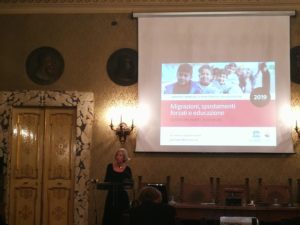 The 2019 GEM report focuses on “presenting evidence on the implication of different types of migration and displacement for education but also the impact that reforming the curricula, pedagogy and teacher preparation can have on embracing diversity,” Stefania Giannini. This report serves as a guide for teachers and governments to determine education objectives for future multicultural generations.
The 2019 GEM report focuses on “presenting evidence on the implication of different types of migration and displacement for education but also the impact that reforming the curricula, pedagogy and teacher preparation can have on embracing diversity,” Stefania Giannini. This report serves as a guide for teachers and governments to determine education objectives for future multicultural generations.